When looking for a new job or trying to advance in our career, we often focus on demonstrating and improving our hard skills. However, more and more employers are also starting to understand the importance of soft skills. Therefore, companies attempt to seek out people who possess these skills as well as provide training to help employees develop them.
So, I thought I could briefly discuss why soft skills training is necessary and what challenges they pose in the context of e-learning.
Why do soft skills matter
Soft skills fall into several categories, including communication, teamwork, work ethic and critical thinking. Looking at these categories, it’s not difficult to grasp the importance of soft skills in our daily work.
An individual can excel in hard skills, but it won’t do much good if they fail to effectively plan their time, communicate information to others, understand other people’s point of view, etc. The reality is that hard skills will seldom be enough, as we don’t work in isolation – how we work also impacts our colleagues and clients.
Why should employers care
Some types of soft skills training are usually mandatory, for example, anti-harassment and information security training. However, employers should look beyond compliance demands and look for opportunities to further improve other soft skills that can benefit the company. Why? Here are just a few reasons:
1. Task automation
With continuous improvements in technology, administrative tasks can (and are) being automated. This means that employees will be required to turn to more complex tasks that machines can’t accomplish.
2. Productivity
Soft skills can have a great impact on productivity. Good communication between employees, management and clients can ensure clarity in regard to expectations and deadlines.
3. Efficiency
Such abilities as time management, collaboration skills and decision making also strongly affect how efficiently employees can accomplish their tasks. This will allow your team to work smarter, not harder.
4. Loyalty
Employees want to improve their soft skills and will appreciate the opportunity. This leads to improved morale and employee retention. A lot of employees would love to learn and improve their skills while working, but not everyone has the chance.
5. Career
Soft skills training can help prepare employees for more responsible roles that require leadership abilities. Allow your employees to learn and improve their skills and after a while, they could become great leaders for your employees.
Therefore, employers should consider investing in other types of soft skills training, such as team management, conflict resolution, negotiation skills, self-management, self-motivation, etc. These investments may not show immediate results, but are sure to pay off in the long run.
Training challenges
So, we’ve established that soft skills are important. However, it’s difficult to tell whether or not an individual possesses these skills. As opposed to hard skills, there is no simple way to measure soft abilities.
Therefore, when it comes to training, a series of single choice questions is unlikely to give you a clear picture of an individual’s ability to apply soft skills. You need to learn how the employee will evaluate and deal with various complex situations, and this requires a lot more thought in terms of instructional design.
Our experience
When it comes to e-learning, we’ve found that the best way to help people understand and improve their soft skills is by simulating real-life situations. Here are just some types of interactions that could be useful for soft skills training.
Scenarios
In scenarios, the learner is put in a situation where they can make choices and see the impact that their choices can have.
Here below you can see an example from our Efficient Meetings course template, where the learner is introduced to a situation and has to make a decision based on what he learned previously in the course. After that, he receives feedback and can move on to the next scenario.


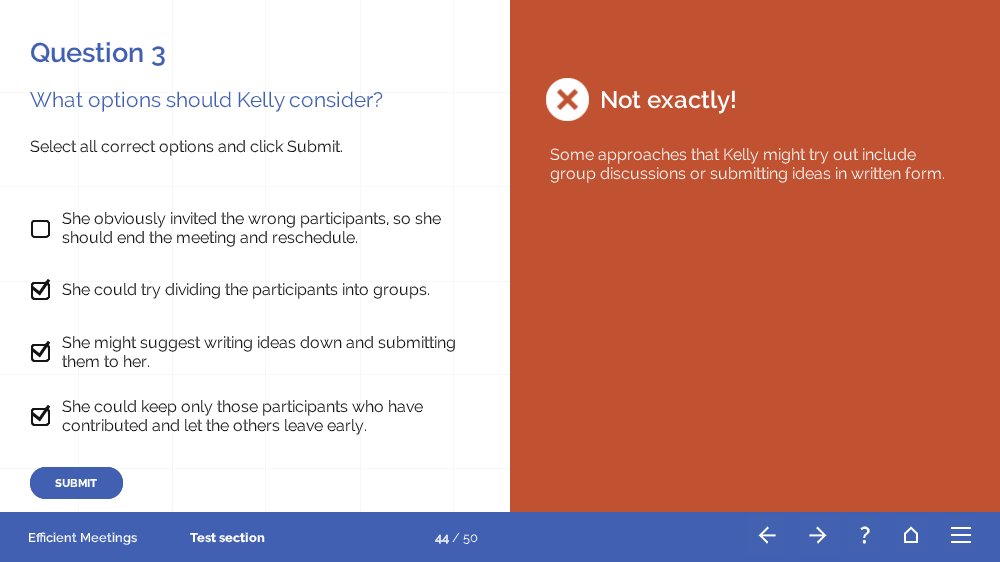
Thinking exercises
When it comes to soft skills, quite often there is no single correct answer. To demonstrate this, you can create simple exercises that ask the learner to consider an issue and then receive feedback which explains the issue, but doesn’t claim that the learner is right or wrong.
Here below you can see an example from our Workplace Harassment course template, where learners are asked to decide whether these phrases that they might have heard in the office can be justified or not.
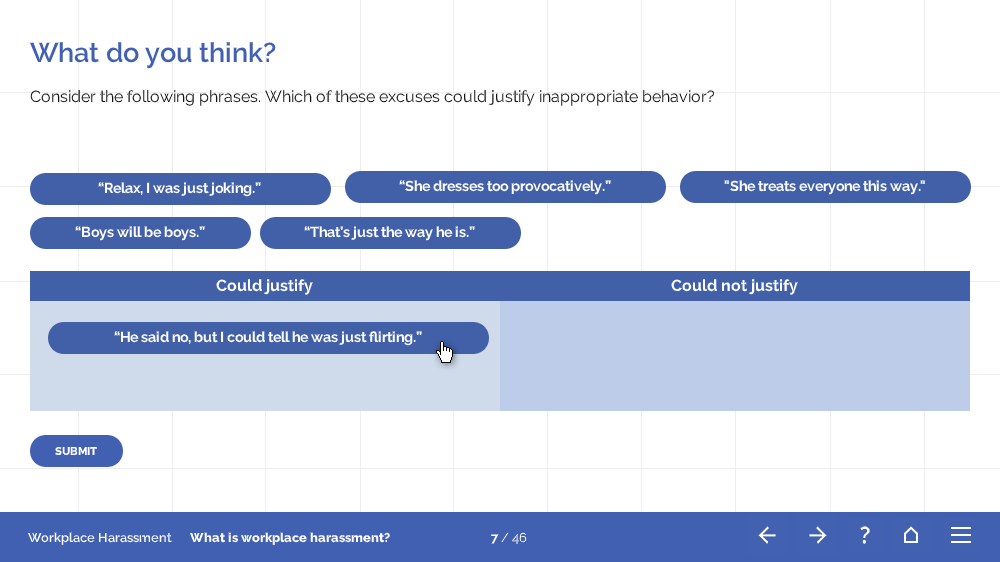
This is a starting task in our Data Protection course template where learners are introduced to the topic by asking what could cause a data breach in the workplace. Even though all of the answers are correct and each of the activities could cause a data breach, user get’s a positive feedback that informs that event the ones he didn’t mark can be a possible threat to data security.
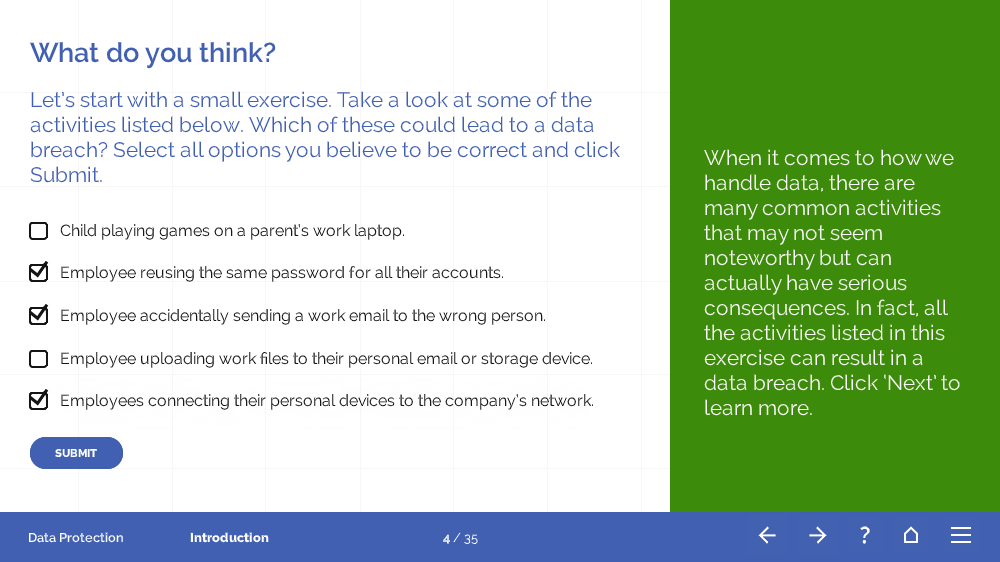
Interactive tasks
For a more playful and engaging approach, you can introduce interactive challenges to the learner. We created a phishing email example in our Data Protection course template where user had to find all warning signs for a phishing attempt.
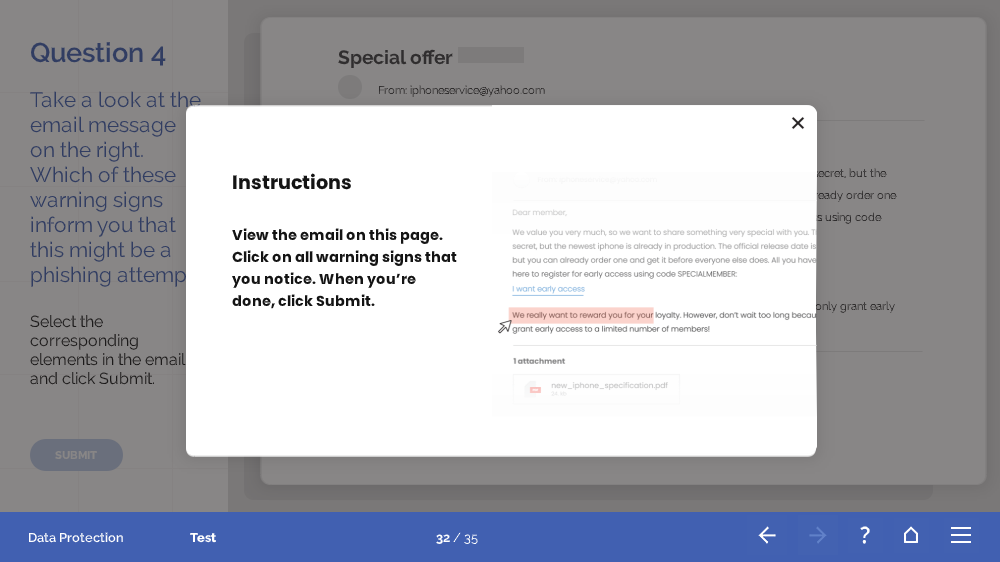
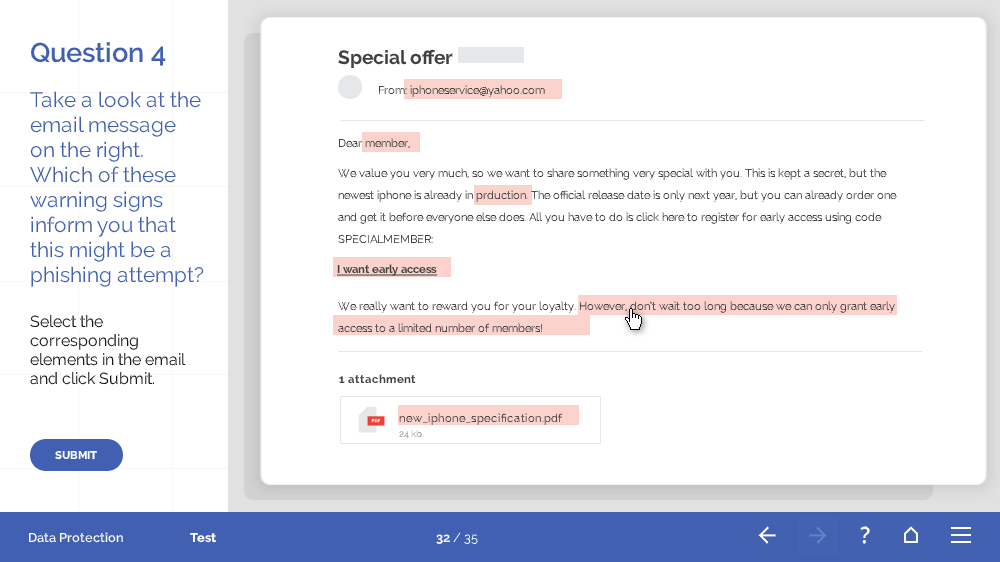
EXPLORE MORE
Looking for more ideas for your soft skills training? Our course templates might be just what you’re looking for. Click below to take a closer look at all course templates we’ve produced so far, and don’t hesitate to contact us if you have any questions!


Comments